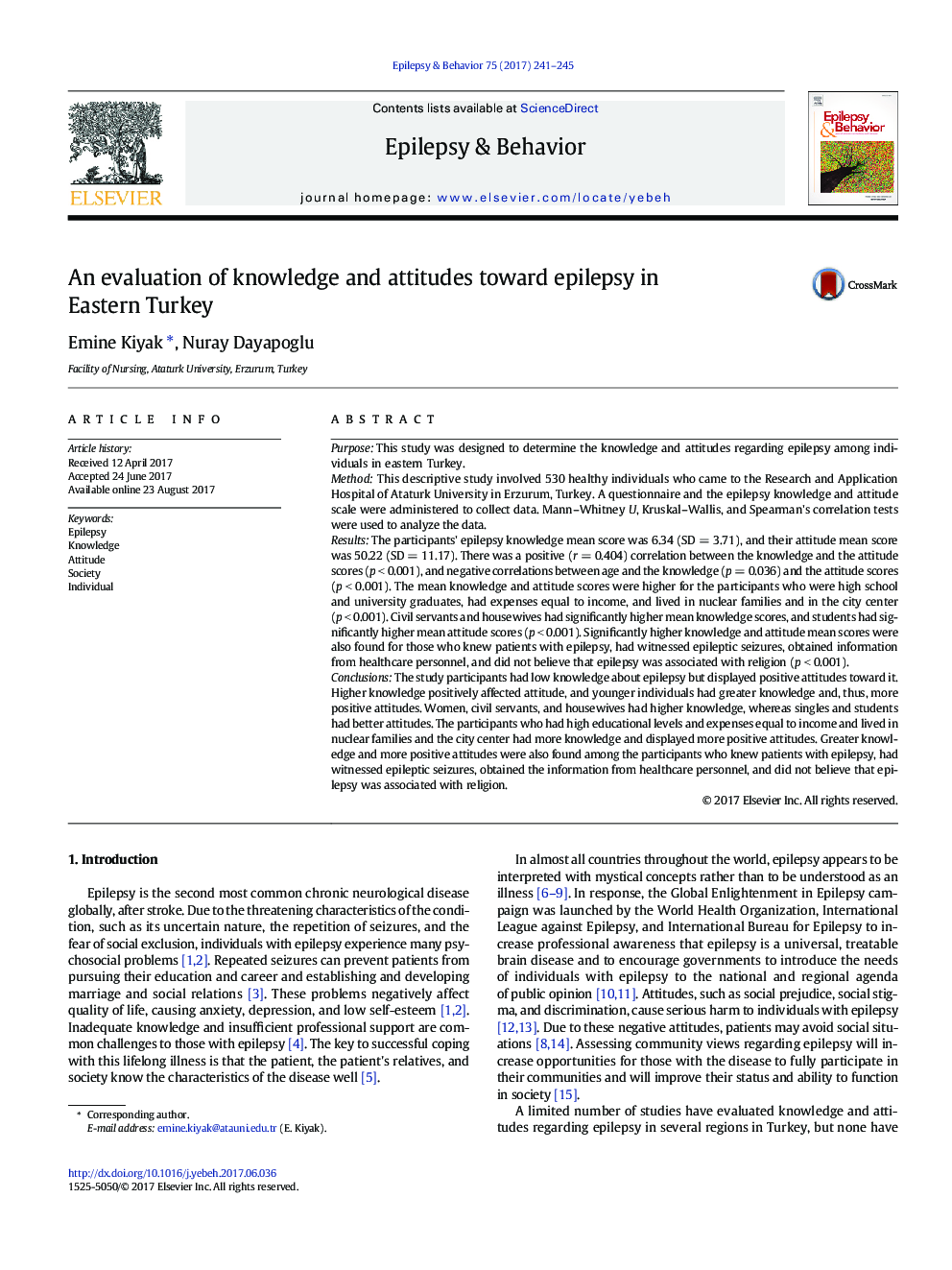| کد مقاله | کد نشریه | سال انتشار | مقاله انگلیسی | نسخه تمام متن |
|---|---|---|---|---|
| 5628169 | 1579818 | 2017 | 5 صفحه PDF | دانلود رایگان |
- The awareness and attitudes toward individuals with epilepsy among members of society are very important.
- It was found that the participants had low knowledge of epilepsy but displayed positive attitudes toward epilepsy.
- A positive, significant correlation was found between knowledge and attitude in this study.
- Knowledge and attitudes about epilepsy in Turkey are affect many features, including religious beliefs.
PurposeThis study was designed to determine the knowledge and attitudes regarding epilepsy among individuals in eastern Turkey.MethodThis descriptive study involved 530 healthy individuals who came to the Research and Application Hospital of Ataturk University in Erzurum, Turkey. A questionnaire and the epilepsy knowledge and attitude scale were administered to collect data. Mann-Whitney U, Kruskal-Wallis, and Spearman's correlation tests were used to analyze the data.ResultsThe participants' epilepsy knowledge mean score was 6.34 (SD = 3.71), and their attitude mean score was 50.22 (SD = 11.17). There was a positive (r = 0.404) correlation between the knowledge and the attitude scores (p < 0.001), and negative correlations between age and the knowledge (p = 0.036) and the attitude scores (p < 0.001). The mean knowledge and attitude scores were higher for the participants who were high school and university graduates, had expenses equal to income, and lived in nuclear families and in the city center (p < 0.001). Civil servants and housewives had significantly higher mean knowledge scores, and students had significantly higher mean attitude scores (p < 0.001). Significantly higher knowledge and attitude mean scores were also found for those who knew patients with epilepsy, had witnessed epileptic seizures, obtained information from healthcare personnel, and did not believe that epilepsy was associated with religion (p < 0.001).ConclusionsThe study participants had low knowledge about epilepsy but displayed positive attitudes toward it. Higher knowledge positively affected attitude, and younger individuals had greater knowledge and, thus, more positive attitudes. Women, civil servants, and housewives had higher knowledge, whereas singles and students had better attitudes. The participants who had high educational levels and expenses equal to income and lived in nuclear families and the city center had more knowledge and displayed more positive attitudes. Greater knowledge and more positive attitudes were also found among the participants who knew patients with epilepsy, had witnessed epileptic seizures, obtained the information from healthcare personnel, and did not believe that epilepsy was associated with religion.
Journal: Epilepsy & Behavior - Volume 75, October 2017, Pages 241-245
